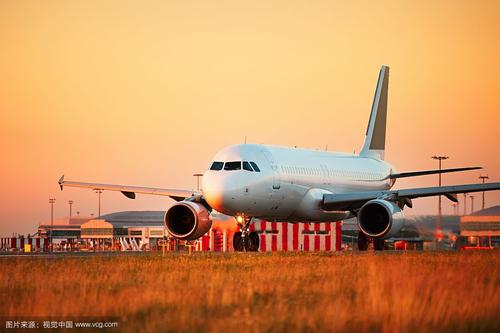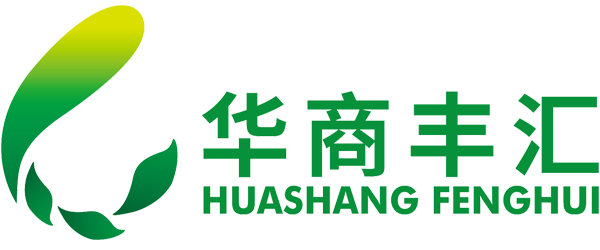The detailed operation process of air freight import and export, remember to collect!
Everyone must be very interested in the import and export process of air freight. Today, Huashang Fenghui International Logistics will carefully talk with you about the import and export process of air freight. So that everyone can clearly understand where their goods are going! It can also supplement industry knowledge, and there may be details that you usually miss.
Often there is such a difference between a master and an amateur. High-quality agents often determine the "destiny" of goods!

sender
The consignor must provide:
1. Provide goods information: product name, number of pieces, weight, box size, destination port and destination port consignee's name, address, telephone number, shipping time, consignor's name, telephone number, and address.
2. Required customs declaration information:
A: List, contract, invoice, manual, verification form, etc.
B: Fill in the customs declaration letter of attorney and seal it with a blank letter paper for backup during the customs declaration process, and hand it over to the freight forwarder or customs broker who entrusts the declaration for processing.
C: Confirm whether you have import and export rights and whether the products require quotas.
D: According to the trade method, the above documents or other necessary documents are handed over to the freight forwarder or customs broker who entrusts customs declaration for processing.
3. Find a freight forwarder: The shipper can freely choose a freight forwarder, but should choose a suitable agency in terms of freight rate, service, and freight forwarding strength and after-sales service.
4. Inquiry: negotiate the freight rate with the selected freight forwarding company. According to different freight rates, freight forwarding companies have different freight rates. Generally speaking, the higher the weight level, the more favorable the price. You can also apply for more favorable freight rates.
Freight forwarding company
1. Power of attorney: After the shipper and the freight forwarder determine the transportation price and service conditions, the freight forwarder will give the shipper a blank "Cargo Shipment Power of Attorney", and the shipper will truthfully fill in this consignment letter and fax it or Return it to the freight forwarder.
2. Commodity inspection: The freight forwarder will check whether the content of the power of attorney is complete (incomplete or non-standard should be supplemented), understand whether the goods are subject to commodity inspection, and assist in handling the goods that require commodity inspection.
3. Booking: According to the shipper's "Power of Attorney", the freight forwarder will book the cabin with the airline (the shipper can also specify the airline), and confirm the flight and related information to the customer.
4. Receiving the goods: A. Delivery by the consignor: The freight forwarder shall fax the goods into the warehouse map to the consignor, indicating the contact person, telephone number, delivery address, time, etc. So that the goods can be put into the warehouse timely and accurately. B. The freight forwarder receives the goods: the shipper needs to provide the freight forwarder with the specific receiving address, contact person, telephone number, time and other relevant information to ensure that the goods are in the warehouse in time.
5. Settlement of transportation costs: Both parties should determine when not receiving the goods: Prepayment: local payment, collect: the destination port customer payment.
6: Mode of transportation: direct, air-air transshipment, sea-air combined transport, land-air transshipment.
7: Freight composition: air freight (subject to the freight forwarder and the consignor negotiated freight), customs declaration fees, document fees, fuel surcharges and war risks, freight station ground handling fees, and other possible due to different goods Miscellaneous expenses.
Airport/airline cargo terminal
1. Tally: When the cargo is delivered to the relevant cargo station, the freight forwarder will make the main label and sub-label according to the airline's waybill number, and stick it on the cargo for the convenience of the cargo owner, freight forwarder and cargo at the port of departure and destination. Station, customs, airline, commodity inspection, and consignee identification.
2. Weighing: hand over the labeled goods to the cargo station for safety inspection, weighing, and measuring the size of the cargo to calculate the volumetric weight, and then the cargo station will write the actual weight and volumetric weight of the entire order into the "receivable shipping book", Stamp with "Security Inspection Seal", "Receivable Shipping Seal" and signature confirmation.
3. Billing: The freight forwarder will type all the cargo data into the airline's waybill according to the "receivable shipping book" of the cargo station.
4. Special handling: due to the importance, danger, and shipping restrictions (such as oversize, overweight, etc.) of the cargo, the cargo station will require the carrier's airline representative to review and sign a statement before entering the warehouse.
Commodity inspection
1. Documents: The shipper must issue a list, invoice, contract, and power of attorney for inspection (provided by the customs broker or freight forwarder)
2. Inspection: Make an appointment with the commodity inspection for inspection time, the commodity inspection bureau will take samples of the goods or make an on-site assessment and make an audit conclusion.
3. Release: After passing the inspection, the Commodity Inspection Bureau will make a certification on the "Inspection Authorization Letter".
4. Commodity inspection shall carry out corresponding operations according to the supervision conditions of "commodity codes" of various goods.
Customs broker
1. Receiving and delivering orders: The customer can choose the customs broker by himself, or entrust a freight forwarding company to declare, but no matter what, all the customs declaration materials prepared by the shipper, together with the "receivable shipping station" "Book", the airline’s original air waybill is delivered to the customs broker in time to facilitate timely customs declaration and facilitate early customs clearance and transportation of the goods.
2. Pre-entry: According to the above documents, the customs broker will sort out and improve all customs declaration documents, enter the data into the customs system, and conduct pre-review.
3. Declaration: After the pre-recording is passed, the formal declaration procedure can be carried out and all the documents will be submitted to the customs for review.
4. Delivery time: according to flight time: cargo documents that need to be cleared at noon must be handed over to the customs broker before 10:00 am at the latest; cargo documents that need to be cleared in the afternoon must be cleared at 15:00 at the latest Hand over to the customs broker before the point. Otherwise, it will increase the burden of the customs broker’s declaration speed, and may also cause the cargo to be unable to enter the scheduled flight, or the cargo terminal may charge overtime fees due to the emergency.
customs
1. Document review: The customs will review the goods and documents based on the customs declaration materials.
2. Inspection: random inspection or self-inspection by the freight forwarder.
3. Tax collection: The customs collects tax according to the category of the goods and in accordance with the provisions of national laws, and fills in the verification form (for the purpose of tax refund after the goods are exported).
4. Release: After the above procedures are complete, the customs will release the goods, stamp the customs release seal on the relevant documents, and hand them to the relevant customs broker.
airline
1. Arrangement: The airline will arrange the loading table for the goods that have been released by the customs according to the size and weight of the goods, and hand them to the cargo station for cargo packing or pre-allocation.
2. Installation: After the goods are packed or pre-allocated, the installation work is carried out, and the transshipment port and the destination port are notified in accordance with the loading manifest to facilitate the smooth transfer and arrival of the goods.
3. Charges: Airlines will charge freight forwarders based on the chargeable weight, freight forwarders will also charge customers freight based on the chargeable weight, and freight stations will also charge freight forwarders with ground handling fees based on the chargeable weight.
Pick up
1. Directly to the port of destination: The consignee listed on the air waybill will clear customs and collect the goods.
2. Non-direct destination port: the airline will be responsible for the transshipment and deliver the goods to the final destination port, and then the consignee shown on the waybill will clear the customs and receive the goods.
Detailed explanation of air import process
1. Tally
After the cargo arrives, the cargo station will sort out and verify the integrity of the cargo according to the data on the air waybill. If there is damage or shortage, it will assist the consignee to trace or claim against the airline, and track the cargo that arrives in batches. Until the goods are all collected.
2. Notice
The cargo station will notify the consignee shown on the air waybill to obtain the bill of lading declaration (the consignee can entrust the customs broker to carry out customs clearance)
3. Inspection
A: The customs will review the imported goods and release the approved goods.
B: The goods that need to undergo commodity inspection must be declared to the Commodity Inspection Bureau. After the inspection is passed, the Commodity Inspection Bureau will issue a certification document, which will be delivered to the customs by the customs broker or the owner/forwarder, and then the import declaration customs procedures will be carried out.
C: The released goods will be subject to relevant customs duties in accordance with national laws.
4. Pickup:
The consignee will hand over the documents that have passed the customs to the cargo station for processing and pick up the goods.
5. Settlement:
The consignee will pay the customs declaration fee according to the charging standard. According to the different conditions of the goods, there will be different customs clearance times. Generally, the cargo station will keep the goods for free within three days after receiving the goods. After this period, there will be a ground handling fee (0.5 yuan/day).
6. Customs clearance:
The time for the airport customs to accept import declarations and export declarations is the same. The customs clearance time is generally two working days, except for some companies that have an "emergency book". Import declarations can be made on holidays. If there is no problem with the goods, the customs clearance time will be shortened accordingly As a working day.
The above is the detailed operation process of air import and export, remember to collect it! According to the introduction, if your company has a large amount of goods that need to be exported to Southeast Asia, Vietnam and other countries, welcome to discuss cooperation with our company. We are a professional 16-year international sea, land and air cleaning expert, first-hand agent, first-hand price, 24-hour hotline: 138 -0885-6830 Miss Li 135-9035-1376, Manager Huang.


